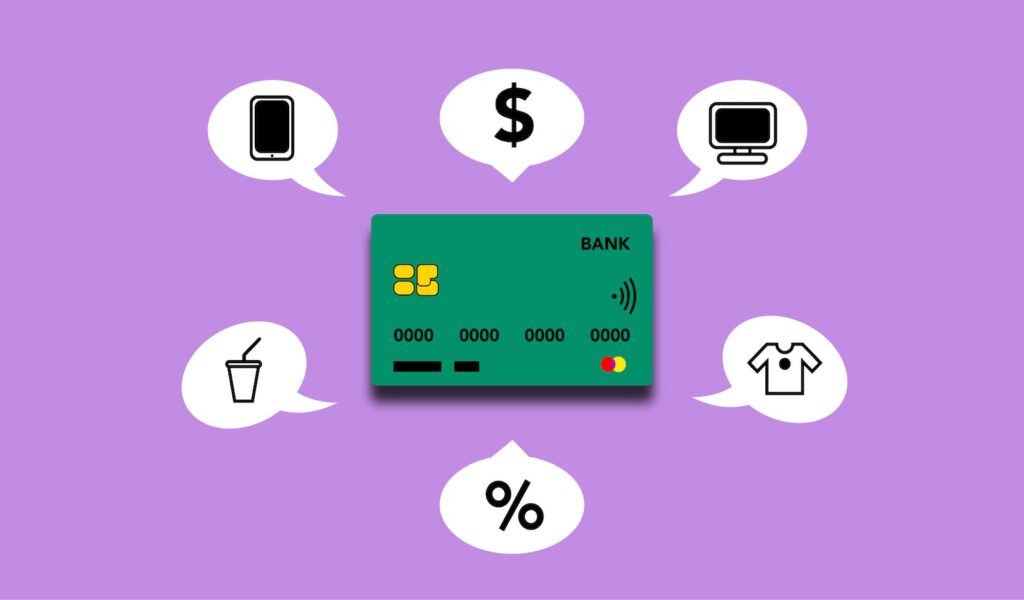
Deciding between using a credit card and a debit card can be tricky. One fact to consider: Americans use credit cards for 23% of all transactions, which shows their popularity. This article will compare the two, highlighting how each one affects spending and saving so you can make informed choices.
Keep reading to find out which card could work best for your wallet!
Key Takeaways
- Choose credit cards to build a solid credit history, which is valuable for future loans and financial opportunities.
- Use debit cards for immediate payments from your bank account and avoid debt but remember that recovering from fraud may take longer.
- Earn rewards like cashback or miles by using credit cards responsibly and paying off balances each month to prevent debt.
- Monitor spending with regular account checks and alerts to keep your finances safe from unauthorized transactions.
- By selecting the right card for you, whether it’s a credit card for building credit and earning rewards or a debit card for controlled spending, you can enhance your financial well-being.
Pros and Cons of Using Credit Cards vs Debit Cards
Using a credit card allows you to build credit history and earn rewards, but it also comes with the risk of debt. On the other hand, using a debit card provides fraud protection and helps you avoid debt, but it may lack the benefits of building credit.
Build Credit History
Building a credit history is crucial for anyone looking to finance big purchases like a home or a car in the future. Credit cards offer an opportunity to establish and maintain this history, as they report your activity to credit bureaus each month.
By using credit cards responsibly — paying off balances on time and keeping debt low — you demonstrate financial reliability. This can lead to better loan terms and lower interest rates.
Having a strong credit history is essential in today’s electronic payments world, where your creditworthiness often dictates your financial options. It’s not just about borrowing money; many landlords, utility companies, and employers check credit scores too.
Using a combination of smart spending habits with credit cards and consistent monitoring can help build that solid foundation for your financial security.
Fraud Protection
Credit cards offer fraud protection, shielding you from unauthorized transactions. In case of fraudulent charges, credit card companies investigate and waive the charges while you are not held liable for the expenses.
Debit cards have similar safeguards, but the process of recovering lost funds may take longer and could impact your immediate cash flow. With credit cards, you can also set up alerts to monitor your account for any unusual activity proactively.
To ensure safety when using credit or debit cards, it’s important to regularly review your statements for any unauthorized purchases. Additionally, consider opting for two-factor authentication when making online transactions to add an extra layer of security against potential fraudsters attempting to access your account information without authorization.
Avoid Debt
To avoid debt, it’s crucial to spend within your means and resist the temptation of overspending. By monitoring your expenses, setting a budget, and keeping track of your purchases, you can prevent unnecessary debt accumulation.
Additionally, paying off credit card balances in full each month helps to avoid high interest charges that can lead to long-term debt problems. Responsible money management ensures that you use credit and debit cards wisely without falling into excessive debt.
Understanding the differences between credit and debit cards is essential for making informed decisions about spending habits. Making sure to use credit and debit cards responsibly allows you to take advantage of their benefits while avoiding potential financial pitfalls.
Earn Rewards
To avoid falling into debt, it’s crucial to consider the rewards offered by credit cards. Many credit cards offer cashback, points, or airline miles on purchases. By using a credit card wisely and paying off the full balance each month, you can take advantage of these rewards without accumulating debt.
Some debit cards also offer rewards programs for specific purchases or through affiliated retailers. It’s important to compare different reward programs and choose the one that best aligns with your spending habits and lifestyle in order to maximize your benefits.
When it comes to earning rewards, credit cards and some debit cards provide incentives such as cashback, points, or airline miles for making purchases. By evaluating various reward programs and choosing the most beneficial one based on your spending patterns and needs, you can leverage these rewards without getting into debt.

How to Maximize the Benefits of Credit and Debit Cards for Smart Spending and Saving
Maximize the benefits of credit and debit cards by choosing ones that offer cashback rewards or loyalty points. Take advantage of sign-up bonuses and promotional offers to earn extra perks.
Use credit cards with no annual fees and low-interest rates to minimize costs.
Opt for a debit card linked to a high-yield savings account, enabling you to automatically save while making purchases. Set up spending alerts and monitor your transactions regularly, ensuring you stay within your budget.
Consider utilizing budgeting apps to track expenses effectively.
Conclusion
In conclusion, understanding the advantages and disadvantages of credit cards and debit cards is crucial for smart spending. Consumer spending habits can be influenced by payment convenience and options available with cashless transactions.
By managing spending with debit cards and maximizing the benefits of credit cards, individuals can save more while enjoying security and fraud protection.
FAQs
1. What are the key differences between credit cards and debit cards?
Key differences include that credit cards let you borrow money to pay back later, often with added benefits, while debit cards take money directly from your bank account for cashless transactions.
2. How do credit cards offer more security and fraud protection than debit cards?
Credit cards typically provide stronger fraud protection by offering services to dispute unauthorized charges, making them a safer option for online purchases and payment convenience.
3. Can using a debit card help me manage my spending better than a credit card?
Yes, managing spending with debit cards can be easier because you use the money you have in your account, which helps prevent overspending compared to using credit.
4. What are the advantages of using a credit card over making everyday purchases with cash or debit?
The benefits of using a credit card include building your credit score, earning rewards on purchases and having extra time before needing to pay for those purchases.
5. When should I choose to make payments with a debit card instead of a credit card?
You might pick paying with a debit card when looking to keep track of consumer spending habits closely or avoiding debt since it uses funds available in your banking account immediately.

